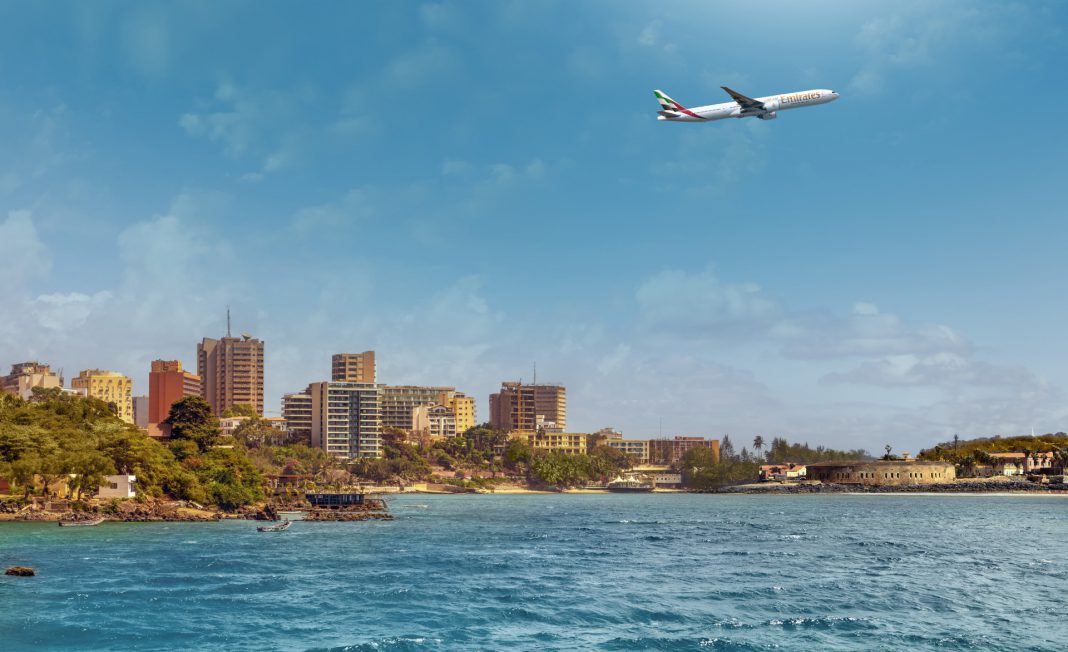Emirates, the world’s largest international airline, is celebrating 15 successful years of flying to Dakar, Senegal. Since the inaugural flight in 2010, Emirates has played a pivotal role in connecting passengers and trade from Senegal, with its vast global network, via Dubai.
Emirates first began operations to Dakar in 2010, operating an Airbus A340-300 with five-weekly services. This marked the first scheduled air link between the UAE and Senegal, creating a seamless, fast and convenient service for travellers. Beyond connectivity into the Middle East, the new route significantly improved ease of travel between Senegal, China and other Asian markets, a boon for traders and the business community. Likewise, the route also enhanced the journey for thousands of pilgrims, travelling to the holy city of Mecca for Hajj and Umrah.
In 2016, Emirates upgraded the route to a Boeing 777-300ER, expanding the weekly seat count and cargo capacity, to bolster connectivity and serve the increased demand. Over the last 15 years, Emirates has operated 6,065 flights and carried over 890,290 passengers to and from the market, forging key inbound traffic from Guangzhou, Shanghai and Beijing in China; Delhi, Chennai and Bombay in India; as well as South Africa and Saudi Arabia. The outbound traffic is similar, with destinations such as China, India, Indonesia, the Philippines and Thailand.
Commenting on the milestone, Arpit Behl, Country Manager, Senegal, Emirates said: “Celebrating 15 years of connecting to Senegal reflects the strong ties we have built with our customers, and partners, and our longstanding investment in this important market. Since our very first flight, we have delivered on our promise to enhance connectivity with the globe and provide travellers with a world-class inflight experience. We are proud to have played a key part in Senegal’s evolving aviation, tourism and trade sectors, and will continue our journey with new and exciting developments for years to come.”
Fondly referred to as the Land of Teraanga, Senegalese culture is defined by kindness, generosity and hospitality – key and in-demand traits amongst Emirates multinational Cabin Crew community. The airline employs more than 50 people from Senegal, including cabin crew, pilots, sales agents, and other positions across the Group. Emirates offers candidates exceptional career opportunities, including a wide range of development programs that aim to retain and inspire top talent.
Emirates A380 Captain, Oumar Ba said, “As a proud Senegalese national, and Airbus A380 Captain for the world’s largest international airline, it’s a pleasure to see Emirates celebrating 15 years of operations to Dakar. I’ve been flying with Emirates for almost 10 years, travelling all over the world – one day, I hope to have the honour of flying the iconic Emirates A380 into Senegal!”
Senegal and the UAE have deep-rooted and mutually beneficial bilateral and economic relations, with a significant growth in trade over the last 5 years. Emirates SkyCargo, the airline’s freight division, has played a key role in facilitating global trade with Senegal, transporting over 18,200 tonnes of goods in and out of Dakar, in the last five years alone. In addition to the bellyhold capacity in passenger aircraft, the airline operates a once weekly Boeing 777F freighter into Senegal, boosting the capacity of trade in and out of the region.
Leveraging its industry-leading portfolio of fit-for-purpose products, Emirates SkyCargo uplifts key exports such as world-famous Senegalese seafood, transporting it worldwide. Popular shipments include thiof commonly known as grouper, Daurade (seabream) and Rougets (red mullet), transported to Europe, and lobster into destinations across East Asia. Beyond seafood, Emirates SkyCargo carries seasonal commodities such as seasonal beans to European destinations, as well as melons and mangoes into the UAE. Conversely, the airline imports vital commodities such as mobile phones and accessories, textiles and garments, and other electronics mostly from UAE, Hongkong and India; in addition to regular pharmaceutical shipments, such as vaccines.


